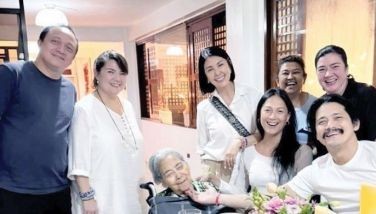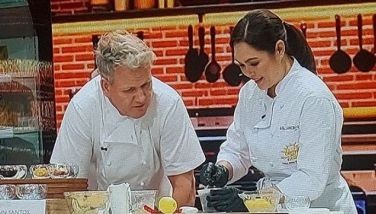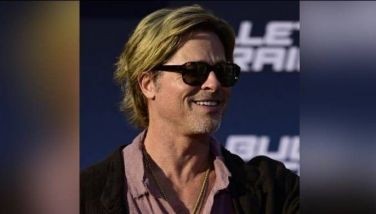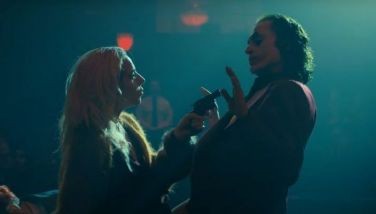How Enola Holmes mirrors Millie Bobby Brown in real life
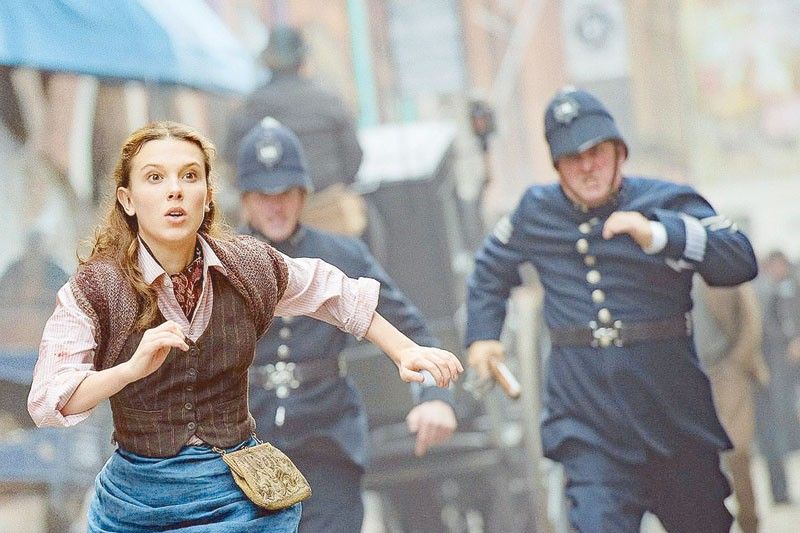
British filmmaker Harry Bradbeer praised Millie Bobby Brown as a “very sophisticated young person,” who kept him on his toes while directing Enola Holmes 2, where the teen actress returns as titular heroine and producer. The Victorian-era mystery/detective film world-premieres today, Nov. 4, on Netflix.
Besides megging Enola Holmes, the award-winning director also co-wrote the screenplay with Jack Thorne, based on Nancy Springer’s best-selling young adult (YA) fiction about the free-spirited sister of the world’s greatest private detective, Sherlock Holmes.
The first movie, as Millie put it in the production notes, was all about Enola’s “self-exploration and personal growth.” The lead character was introduced as a young girl who, while searching for her missing mother and dealing with “very misogynistic” brothers, dared to solve a mystery that threatened the country.
In the sequel, Enola rides high on the success of her first case, believes in herself that she’s her famous brother’s “equal” and does the very “adulting” thing of establishing her own detective agency. She, however, faces people’s distrust and judgment because of her being both young and female. But she also discovers that she doesn’t have to do things alone. She can rely on her newfound sisterhood and “old allies,” including her brother Sherlock (played by Henry Cavill).
“(Millie) has grown up in the same way that the character Enola Holmes has grown up. And when we were writing it, Jack and I realized that Millie is a very sophisticated young person, and that we wanted to reflect that in the writing,” Harry told The STAR during a recent virtual interview when asked about how Millie, who first rose to fame as lead character Eleven in Netflix’s Stranger Things, evolved as an actress in Enola Holmes 2.
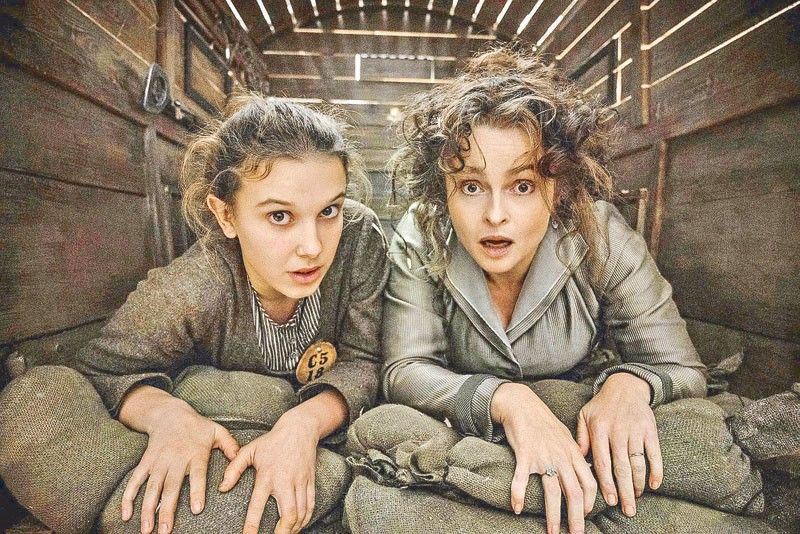
“I found her to be already very confident when she was just 15 on the very first film. Now she was 17 and had learned more from her work. Her instincts were stronger, her performances even more confident. She was quicker, more mischievous,” he added.
Harry also let Millie experiment in her scenes. “I found that she had some wonderful ideas like the scene when she wakes up on Sherlock’s chair in the morning and he says, ‘Why have you just moved everything?’ And she puts her head back and sees the world upside down and then comes back and says, ‘Nothing seems different to me.’ That was all (Millie), that was her idea,” he recalled.
“She threw in a lot of little touches like that. It is so satisfying for a director to see an actor bringing more and more to the part. So, she had come along a long way and was keeping us all on our toes.”
According to Harry, Enola Holmes 2 is also a grittier and more dangerous story set amidst the Match Stick Girls’ Strike of 1888, one of Britain’s most important events in the evolution of workers’ rights and women’s empowerment.
Asked about the challenges of balancing the real, dark realities of that period in history, with the “PG approach” to telling the film’s story, Harry said during the roundtable, “You’re absolutely right, Victorian England was a filthy, dirty, dangerous place. But we were seeing it through the perspective of Enola Holmes and with her own spirit and her own optimistic spirit. And that enabled us to take the audience into that world with her energy and her own perspective. We found that the people she met in that world were people that we wish she could relate to. There were fellow young women who had experienced great difficulties, but they had a lot of positive spirit. I think that helps to make that whole world more palatable.”
He continued, “I think also the world was dangerous, but it was also great fun. So the musical is like a sort of crazy pub tavern at first glance, full of fighting and violence but also laughter, and great music and spirit and happiness. And none of those things are things we should hold from a PG audience.
“So, we actually found that it wasn’t too difficult. The thing we had to really watch was to sugar it down too much. We wanted the audience to really feel the dangers that she was in. So if anything, I feel we could have gone further.”
For the director also known for such female-centric works as the spy-thriller series Killing Eve and the dark comedy-drama Fleabag, his reason for taking on the rather youth-oriented Enola Holmes was that he has “always been interested in telling stories of people growing up and changing, often people (who are) at war with their better sides.”
“And I realized this was a very brave and spunky kid who was actually a lot more brave than she would let on. I felt that this was another story of revelation, of growth, that I could tell to a different audience and in some ways, as we discovered on the first step, an even wider audience.
“The fact that it was a family adventure film was also intriguing because I thought when it came to the political messages in these films, the first and the second, in terms of women’s rights and human rights of unions, this was a wonderful way of sending out a message wrapped in a piece of wonderful entertainment. So, I was very much in the spirit of what I’ve always wanted to do. But this time, to a different, wider audience.”
Harry also reflected on his attraction to telling stories through the female voice and gaze.
“I don’t know. I had a great relationship with my mother. My first great friend was a girl. I was the third of three children. My mother wanted to have a little sister but she couldn’t because of health problems. And I’ve always wanted and spent a great deal of time with girls when I was a little boy and I’ve always had that affinity, I think,” Harry mused.
“The rest you’d have to ask my psychiatrist. I don’t know but I’m just very drawn to women’s stories. I relate to them. The stories that I want to make (are) when I have a strong connection with that main character. And I think there’s something of the drive of these female characters, and also their struggle.
“I mean, the woman’s struggle is still going on. If you want to look at the news, there are women like ours in the film, trying to be heard, trying to protest and they are in certain places really fighting a difficult battle. I relate to that and I think that’s also an important factor.”
- Latest
- Trending














